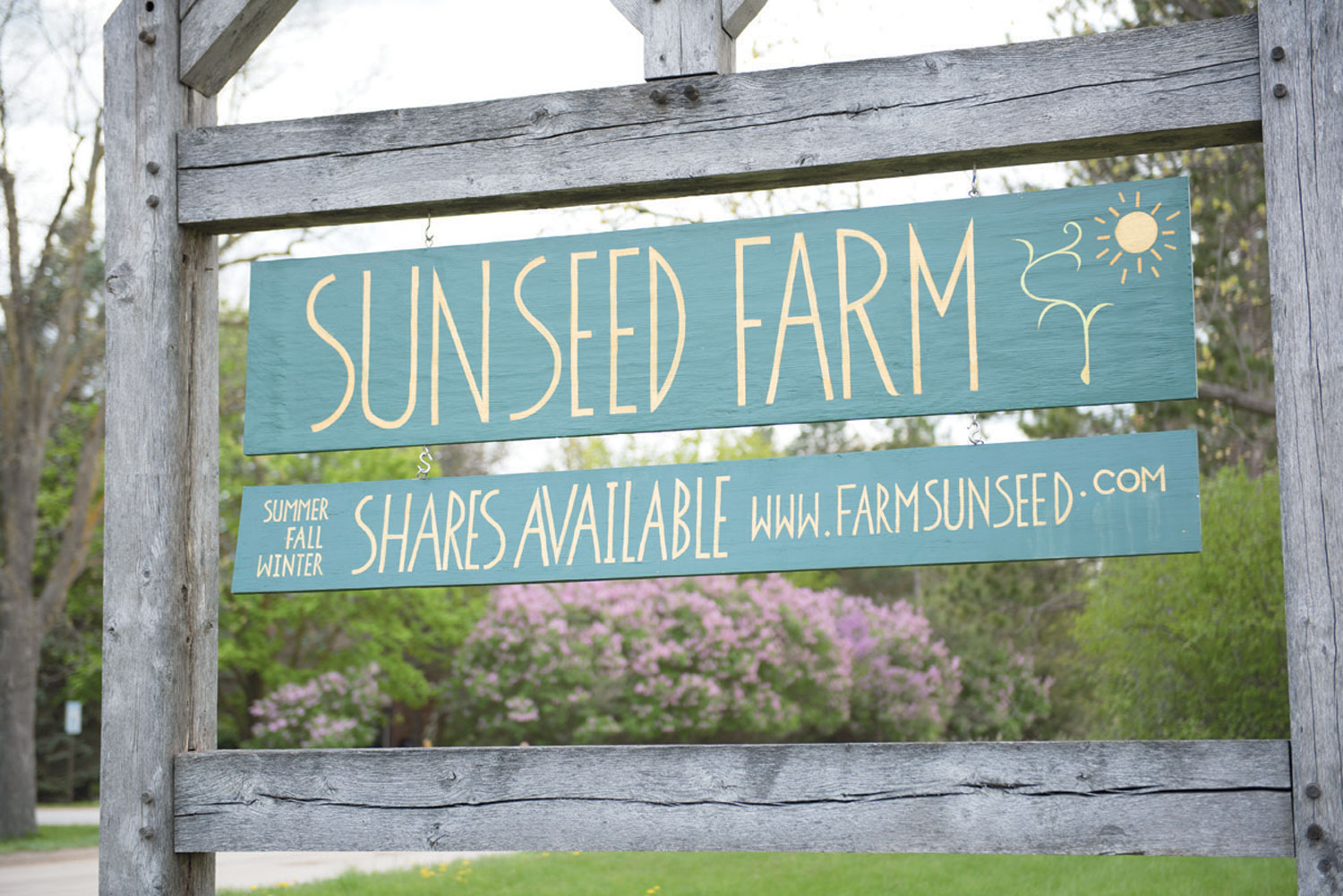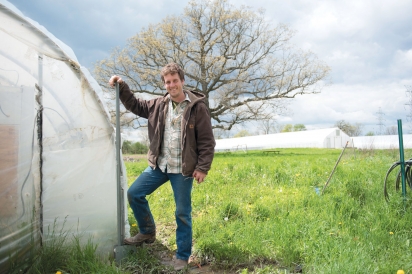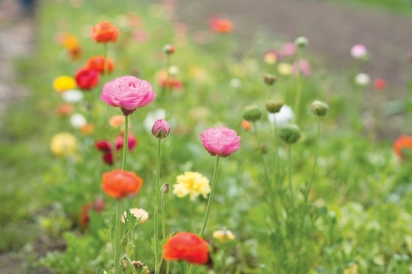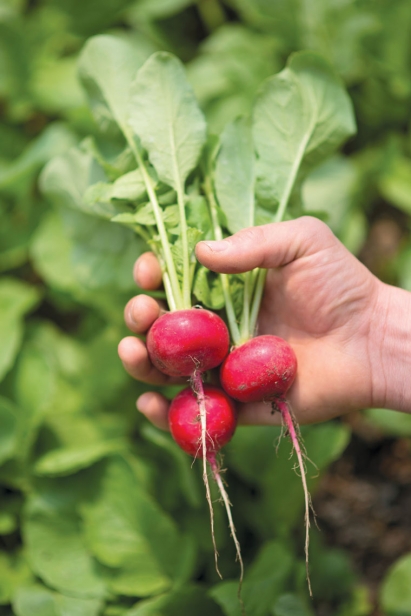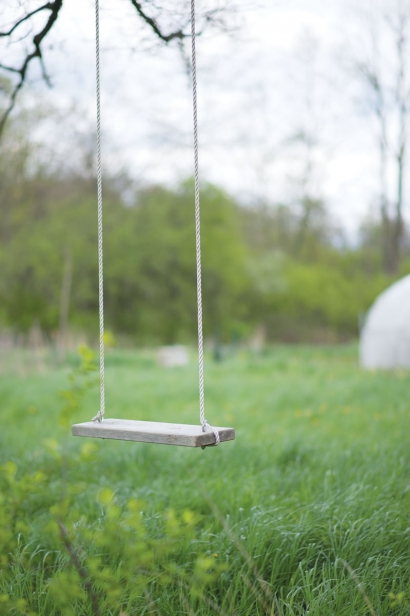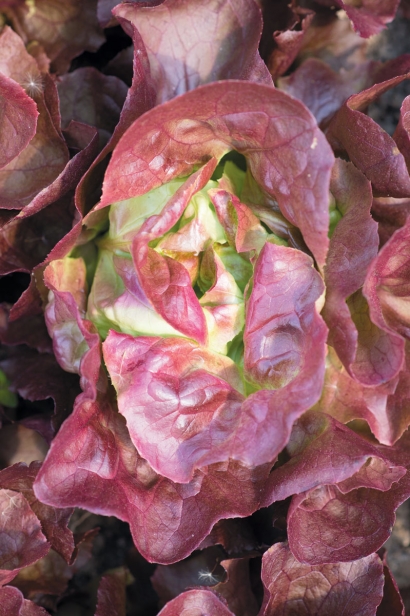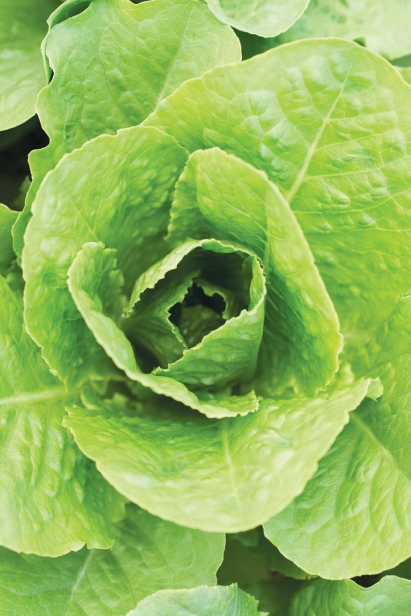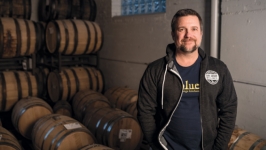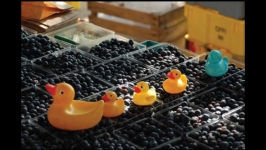Ann Arbor’s Sunseed Farm Thrives Five Years Later
The great white oak still stands mighty like a lighthouse beacon shining across Sunseed Farm in Ann Arbor. The land around it continues its soft roll even as familiar arched farm structures multiply and mechanical farm implements gradually begin to dot its sweeping landscape.
Time has not stood still in the five years since Sunseed took home edibleWOW’s Young Farmer of the Year award in the summer of 2012. A simple visual survey across the fields reveals change: A new farm building sits near the drive and Sunseed’s four hoop houses have grown to seven.
“We just keep on growing,” says Tomm Becker, who started Sunseed alongside his wife, Trilby, in 2009. Stretching across the further field, the three new hoop houses dwarf the originals.
“Each of these houses is twice as long as the others,” says Becker, explaining that in total Sunseed now has 30,000 square feet—⅔ of an acre—of hoop house growing space. “It’s really great to grow fresh food in the wintertime. It makes you appreciate what you have. We can put together a pretty good share all through the seasons.”
Sunseed also can offer a greater abundance of harvest vegetables— potatoes, onions, beets and rutabagas—that store well and feed CSA shareholders year-round. They grow 12–15 cold-weather crops too, and much-needed infrastructure improvements included electricity that enabled Becker to install a walk-in cooler and a few other key pieces to get a jump on production. Young transplants no longer begin in the Beckers’ basement or garage. They now have a dedicated space carved out in Sunseed’s first hoop house.
“It really has been an anchor space for a long time. Now it’s fulltime propagation space,” says Becker. “It gives us a six-week head start.”
The early start helps Sunseed keep its 120-share traditional CSA fed, as well as its restaurant CSA model, which works with restaurateurs who invest in Sunseed and in turn receive a customized selection to serve. That investment helps Becker plan—and plant— ahead, as well as hire staff.
“It’s a lot of fun having that direct relationship,” Becker says. “I think it’s fun for them too, to have the direct dialogue with us. We get to do the best for them in freshness. James Rigato pioneered that model with us. He was just ‘give me the best of what you have.’”
On this morning, the first of May, the freshest would be just harvested komatsuna, as nearby romaine, butterhead and salanova lettuces are almost there. Radishes and baby leaf salad greens will soon follow and head out to weekly CSA pickup points, or in a pre-packaged box share delivered to a workplace, something relatively new for Sunseed. Along the hoop house’s interior colorful ranunculus, tulips and anemones announce another new aspect of Sunseed: flowers.
“We’re the only ones with local flowers right now,” Tomm Becker says.
“I feel like it’s a big part of the local agricultural piece. It’s on the rise,” says Trilby Becker, adding that local flowers are a good way to keep more local dollars in the area. “There’s a lot of interest in wedding flowers. You can’t get a lot of these varieties anywhere. I think a lot of florists think local farmers only grow snapdragons and zinnias.”
Rye and clover in the field beyond the hoop houses sways with the breeze. Cover crops are essential to Sunseed’s mission, adding nutrients to improve and maintain soil health. Becker rotates crops on Sunseed’s roughly 15 planting acres on four sites within a couple of miles of the main farm. Having multiple sites complicates the management, admits Becker, but offers variety and options with what to plant where.
As Sunseed matures, Becker embraces mechanization more. Initially he and his farm crew relied on stirrup hoes and hand hoes for cultivation. Once they realized the toll it takes on a body, Becker decided that to engage employees long term he would need to take better care of them and to meet their aspirational goals. Now he and his employees—three year-round and five part-time—feed transplant plugs into a mechanical transplanter that sets each tiny plant into an evenly spaced hole it prepared earlier in the process.
“It saves us a ton of time. It saves us a lot of backbreaking labor and creates perfect spacing for mechanical cultivation,” says Becker, determined to support a talented workforce that relies on sustainable wages for its livelihood. Too many small farms depend on internships, he says.
“When we started we were the first year-round CSA in this area. We still are,” says Becker, who is working with others to establish quality and consistency standards. “There were other established CSAs We were kind of the new blood. Since then the local food scene has really flourished. We’ve been part of that.”
Becker hopes to offer more on-site events from a bonfire to educational opportunities. Last year’s events included a cocelebration with Nifty Hoops and hosting an Outstanding in the Field event with Rigato as chef. Such collaborations, with other partners like Solomon Gardens in Grass Lake—where CSA members can easily purchase eggs, meat chickens, lambs and pigs— bring it all together for the Beckers.
“You have to cultivate the relationships,” says Trilby Becker. Like establishing roots in the land, much like their white oak did a century earlier. “A lot of memories are underneath that tree,” says Tomm Becker, appreciatively.
Find out more at Sunseed Farm


